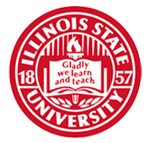Abstract
Speech-language pathologists (SLPs) are the preferred healthcare providers for managing the direct clinical care of patients with dysphagia. By assessing self-perceived competency during academic training, SLP graduate student clinicians may increase their understanding of their skills in dysphagia management. We modified the Dysphagia Competency Verification Tool (DCVT) to use a 5-point ordinal scale to explore how SLP graduate student clinicians’ self-perception of competency in dysphagia management changes over time and to determine the impact of clinical practicum experiences. Seventy-two SLP graduate student clinicians rated their self-perceived competency for four DCVT domains. We used Generalized Estimating Equations (GEE) models to analyze the statistical significance of self-perception of competency ratings for each of the DCVT domains across semesters while accounting for clinical practicum experiences. Overall, the SLP graduate student clinicians indicated an increase in DCVT scores from the beginning of their graduate training program to the time of graduation, but did not perceive themselves as Adequate on most items of the DCVT until their last semester. These results suggest that both SLP graduate student clinicians and SLP graduate training programs would benefit from using a standardized metric to assess self-perceived competence in dysphagia management. DCVT self-perceived competency ratings could inform SLP graduate student clinicians about areas of dysphagia management practice and skills that need further development, allowing them to target these specific areas and gain actual competence.
Recommended Citation
Hazelwood, R.,
Bouldin, E. D.,
Burford, I. R.,
&
Steffen, E. A.
(2022).
Speech-Language Pathology Graduate Student Clinicians’ Self-Perceived Competency in Dysphagia Management.
Teaching and Learning in Communication Sciences & Disorders, 6(3).
DOI: https://doi.org/10.30707/TLCSD6.3.1664996985.113836




